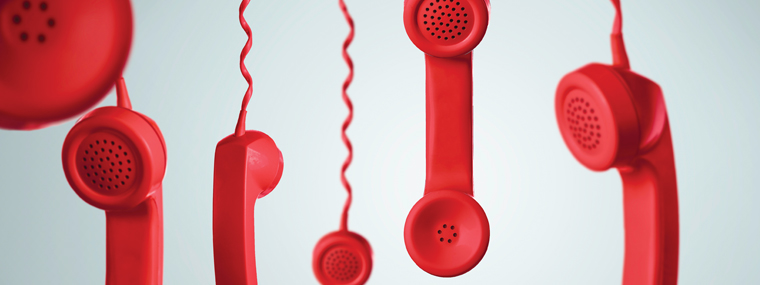
Pool Phones
Required or Not, They are Lifesavers
By Allie Lewis / Published September 2019

Florida is one of only a handful of states that does not require an emergency phone by the pool (unless you have a lifeguard, in which case they are required). However, as property managers continue to place a significant priority on life safety, they recognize that emergency pool phones can function as an essential life-saving tool year-round, whether required by law or not. Proactive managers and board members look for ways to decrease their risk and liability, and they recognize how emergency pool phones can do so.
The troubling statistics are like a burst of cold water on the face. Nearly 90 children younger than 15 drowned in a pool or spa between January and May 2018 according to the USA Swimming Foundation as reported by The National Safety Council. Every year during the July 4th holiday, about 19 children drown. In fact, per PoolSafely.gov, last year Florida experienced 40 fatal drownings, tying with Texas for the most child drownings in any state. Here are some other vital statistics:
- Emergency departments treat about 6,400 pool and spa injuries in children under 15 each year
- Drownings continue to be the second leading cause of preventable death through age 15.
- In 2016, 780 people aged 5 to 24 drowned. Of those, 530 were age 15–24.
Even with adult supervision, the highest rate of drowning in pools, spas, and hot tubs is among children between ages one to four. Per the CDC, drowning is often a silent killer as children are typically unable to signal their distress or call for help. Anyone involved in a near drowning incident, who appears to have recovered, might still be in danger of dry or secondary drowning and must be monitored closely.
Why Cell Phones Are Not Enough to Make A Difference
Some property managers may leave emergencies in their community members’ hands, expecting them to use their cell phones. They hope that any danger can be reported by a witness directly to a 911 station. Why not, since phones do just about everything else for us these days?
Cell phones can be inconsistent and unpredictable in coverage and service. Battery life can also vary according to the quality and age of the phone. Most importantly, unlike a land line that uses ANI/ALI (automatic number identification/automatic location identification) to identify the location of where a call originates, cell phones send signals through the air. That means members of your community can dial 911, but the Public Safety Answering Point (PSAP), otherwise known as the 911 call center, won’t know from where they are calling. It can identify the closest cell tower, but it cannot pinpoint an exact location. Cell phones could fail you just when you need them the most.
Why 911 Should Not Be Your “Go-To” in Emergencies
Are you depending on the traditional 911 call center in an emergency? You may be contacting an overworked, overwhelmed, and understaffed crew. Finding and hiring 911 dispatchers is becoming more and more difficult, according to the Wall Street Journal. It is a job that has always been tough to fill, but the need for emergency operators is becoming an emergency in itself.
There are more than 61,000 emergency call centers in the U. S. processing more than 200 million 911 calls each year, according to the National Emergency Number Association. You don’t need to be a whiz to do the math; many 911 call centers are severely understaffed. The tragic results could mean slower response times and unhappy endings.
Why a Dedicated, Year-Round Emergency Phone System Is a Must (Even if Florida State Law Doesn’t Require It)
Drowning injuries aside, pool phones are often used for non-pool related emergencies throughout the year. Kings III emergency dispatchers take calls for all kinds of property emergencies placed from pool phones because people often find that these are their only access to help in a time of need. These uses include children who have been locked out of their home, domestic disputes, burglary, auto theft, assaults, reporting fires, and a myriad of other medical emergencies that can occur.
Don’t leave anything to chance. If an incident happens at your pool or anywhere else on your property, the push of one button can start the emergency response process immediately. Community members or guests at the property can talk directly into an emergency phone without fumbling with cell phones, looking up emergency contacts or searching for an address.
What to Look for When Searching for An Emergency Phone Provider and Monitoring Service
First find a company that specializes in emergency phone monitoring. They should operate their call center 24/7/365 and always answer the call promptly with a live operator. They should be staffed with operators who are certified in Advanced Emergency Medical Dispatch (AEMD) so that they can quickly and expertly provide step by step pre-arrival medical instructions (including CPR) as needed. And to provide you with risk and liability mitigation, they should record all calls and make recordings available to you should the need arise. They should be insured for your protection as well.
Allie Lewis
Kings III Emergency Communications
Kings III Emergency Communications has been providing complete, compliant, and affordable emergency phone solutions for elevators, poolside, stairwells, parking areas, and more for nearly three decades, monitoring more than 50,000 help phones across the U.S. Our all-inclusive turnkey solution includes equipment, installation, maintenance, and 24/7 monitoring at our very own Emergency Dispatch Center for one low price. Key differentiators include our smart line seizure technology and cellular technologies, both of which eliminate costly dedicated emergency phone lines, and our digital recording and storing of all calls. These valuable benefits coupled with advanced emergency medical dispatch operator training allow us to reduce risk, liability, and costs for our customers. As always, Kings III emergency telephone technologies are designed, manufactured, and supported in the USA. For more information, call (866) 871-5633 or visit www.kingsiii.com.




